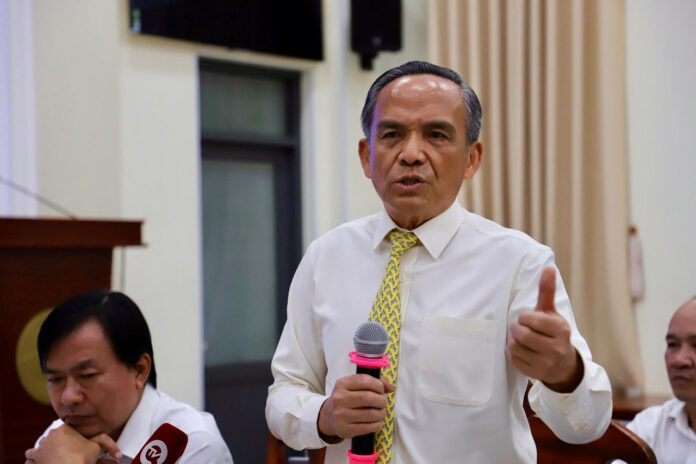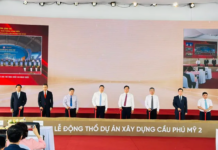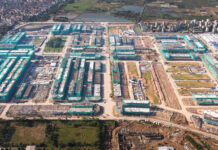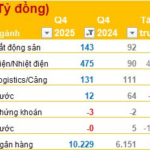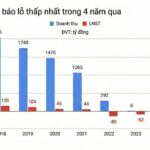The Ho Chi Minh City Real Estate Association has sent a document to the City’s Party Committee, People’s Council, People’s Committee, National Assembly Delegation, and Fatherland Front Committee, proposing amendments and supplements to the draft Land Price Table to be adjusted in the city, applicable from August 1, 2024, to December 31, 2025.
Addressing the “Two Prices” Issue
Mr. Le Hoang Chau, Chairman of the Ho Chi Minh City Real Estate Association, expressed his appreciation for the Department of Natural Resources and Environment’s publication of the draft adjusted land price table, which would inform citizens of the city about land prices that are closer to market rates.
Assessing the impact, Mr. Chau believed that the draft adjusted land price table would benefit citizens whose land is subject to revocation. They will receive more reasonable compensation, support, and resettlement, with higher compensation amounts than before.
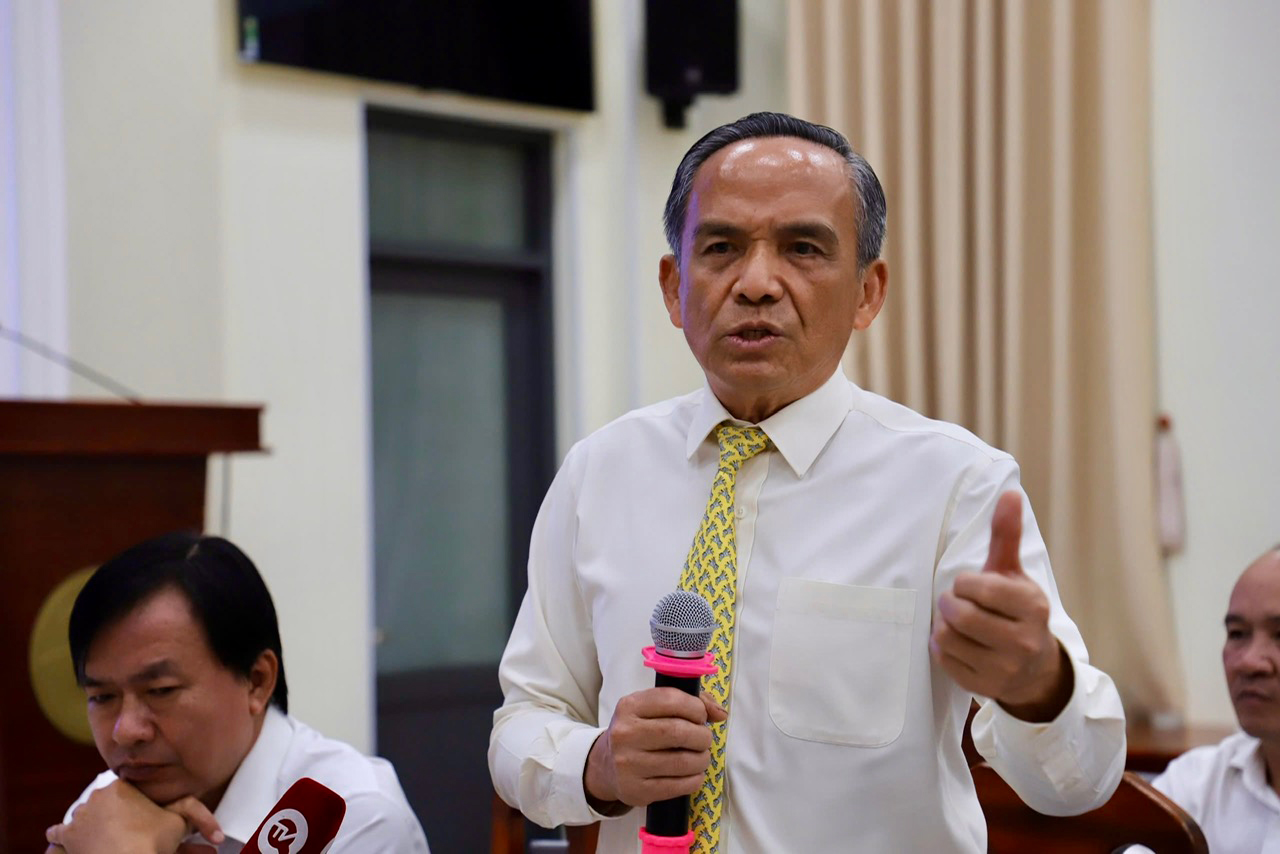
Chairman of the Ho Chi Minh City Real Estate Association, Le Hoang Chau, stated that the draft adjusted land price table has drawn special attention from citizens. Photo: QUOC ANH
Mr. Chau provided an example of compensation for site clearance for the Ring Road 3 project in Hoc Mon district. Previously, the highest adjustment coefficient was only 35 times the land price table issued under Decision 02/2020 of the Ho Chi Minh City People’s Committee. Now, it can be up to 51 times higher.
Additionally, there are several existing inconsistencies, such as “two prices” for land or real estate and housing transactions (tax declaration contracts are lower than actual transaction contracts)… due to the previous land price table, which was often only around 30% of market prices. With the draft adjusted land price table, the “land rent” discrepancy is addressed more appropriately, following the principle of state regulation of the additional value generated from land that is not derived from the user’s investment.
“Therefore, the draft adjusted land price table has a positive impact on ensuring fairness and harmony in the interests of land users, investors, and the state, representing public interests,” Mr. Chau remarked.
The Chairman of the Ho Chi Minh City Real Estate Association also stated that the land prices in the draft adjusted land price table do not affect land valuation for calculating land use fees and land rent for real estate and commercial housing projects. These projects do not apply the land price table but mainly use the surplus method for land valuation as stipulated in the 2024 Land Law, so there is no increase in land use fee or land rent costs.
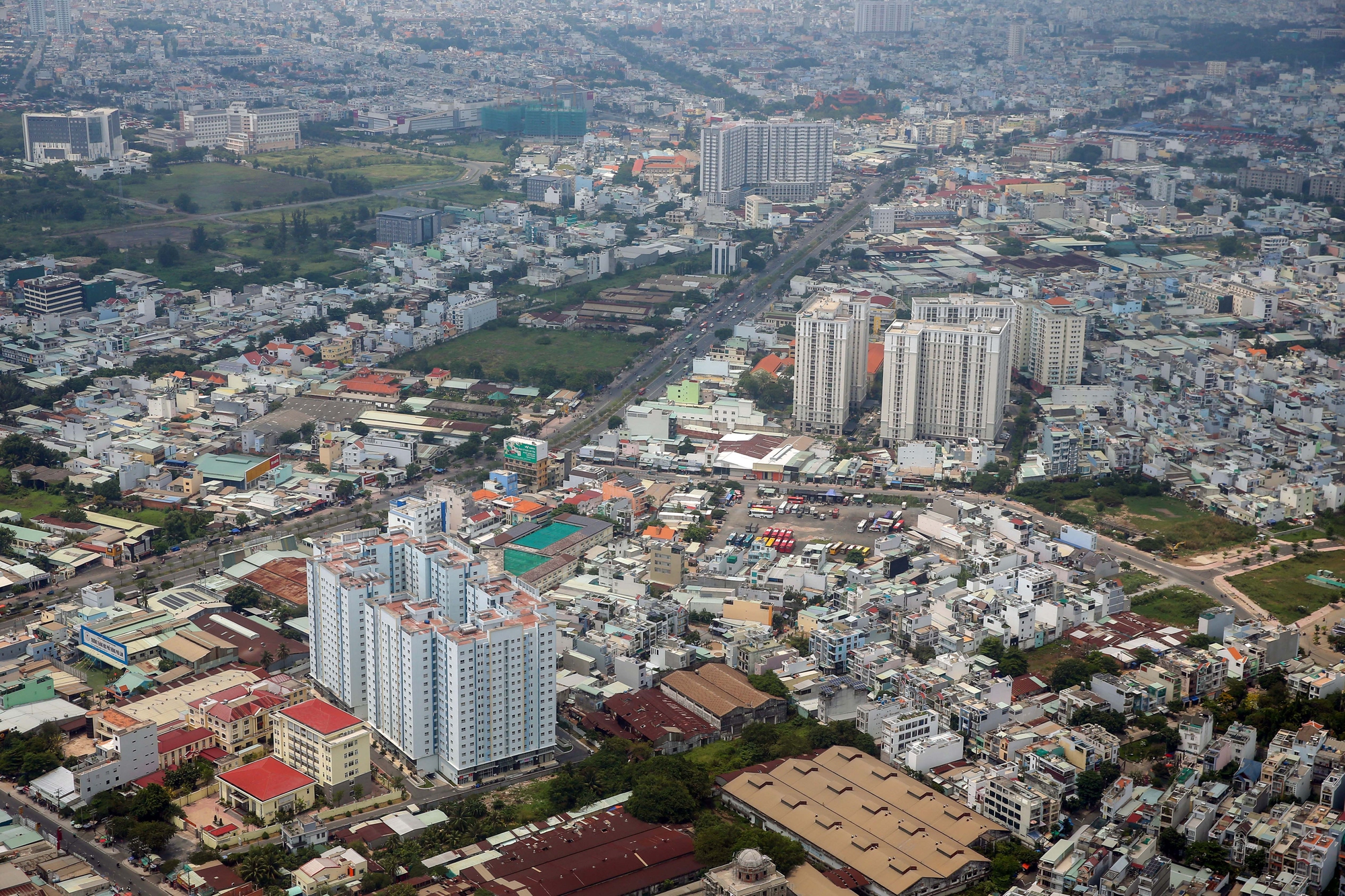
The current land price table in Ho Chi Minh City is considered not reflective of market values. Photo: HOANG TRIEU
Promoting Fairness
Many are concerned that higher land prices, or higher input costs, will result in higher output costs, directly affecting homebuyers.
Regarding this issue, the Ho Chi Minh City Department of Natural Resources and Environment clarified that the land use fee for real estate projects is determined by the surplus method. As a result, the land valuation will differ (as project expenses are included in the land price), and the issuance of the adjusted land price table will not increase the selling price of real estate products in the market.
For agricultural land, the price in the land price table after the adjustment has increased compared to before, making the “land rent” gap more harmonious. This leads to more transparent, public, fair, and reasonable deductible amounts for real estate businesses when fulfilling their financial obligations.
“Moreover, general business activities are not affected by the adjusted land price table, as it will only be effective from August 1, 2024, to the end of 2025,” emphasized the leader of the Department of Natural Resources and Environment.
Recently, at a conference held by the People’s Committee of Ho Chi Minh City to exchange information about the decision to adjust the land price table according to Decision 02/2020, most delegates recognized the necessity of adjusting the land price table as per regulations to match the actual land prices in the locality. This adjustment aims to ensure fairness among different groups of land users.
Accordingly, land valuation aims to balance the interests of the state, land users, and investors. The state’s interest here refers to ensuring that budget revenues are not lost. These revenues are reinvested in social infrastructure, benefiting all citizens equally.
Over 1.7 Million Land Certificates Issued
According to statistics from Ho Chi Minh City’s land-use right certification software system, the city has 1,728,639 land plots. As of June 2024, the Department of Natural Resources and Environment has granted land-use right certificates to 99.55% of these plots. The remaining 7,779 plots are mainly located in outlying districts and counties.
The 7,779 land plots that have not yet been granted land-use right certificates for the first time fall under six cases that are exempt from land use fees or four cases where land use fees are paid at rates ranging from 10% to 60% of the land price table. If the conditions for land use fee payment are not met, Decree 103/2024 will be applied to record the debt of land use fees, which will be paid when the land is transferred, in accordance with regulations.
Three Disadvantages
The Department of Natural Resources and Environment pointed out at least three disadvantages of the land price table according to Decision 02/2020 of the Ho Chi Minh City People’s Committee.
First, it is constrained by the land price framework issued by the Government under Decree 96/2019. Second, it does not include the approved resettlement prices. According to Clause 3, Article 111 of the 2024 Land Law, if there is no land price in the land price table, it is necessary to supplement the land price table to serve as a basis for calculating land use fees for those who are allocated resettlement land.
Third, the 2024 Land Law does not stipulate the method of applying the land price adjustment coefficient to determine the specific land price for land plots with a value of less than VND 30 billion according to the land price table.
Given these three disadvantages, the Department of Natural Resources and Environment emphasized the necessity of adjusting the land price table to match the actual situation in the locality, as stipulated in Clause 1, Article 257 of the 2024 Land Law.
Proposed Planning for Adding 2 New Cities in Ho Chi Minh City
According to Architect Ngô Viết Nam Sơn, Ho Chi Minh City should consider planning two cities within the city in the south and north.

